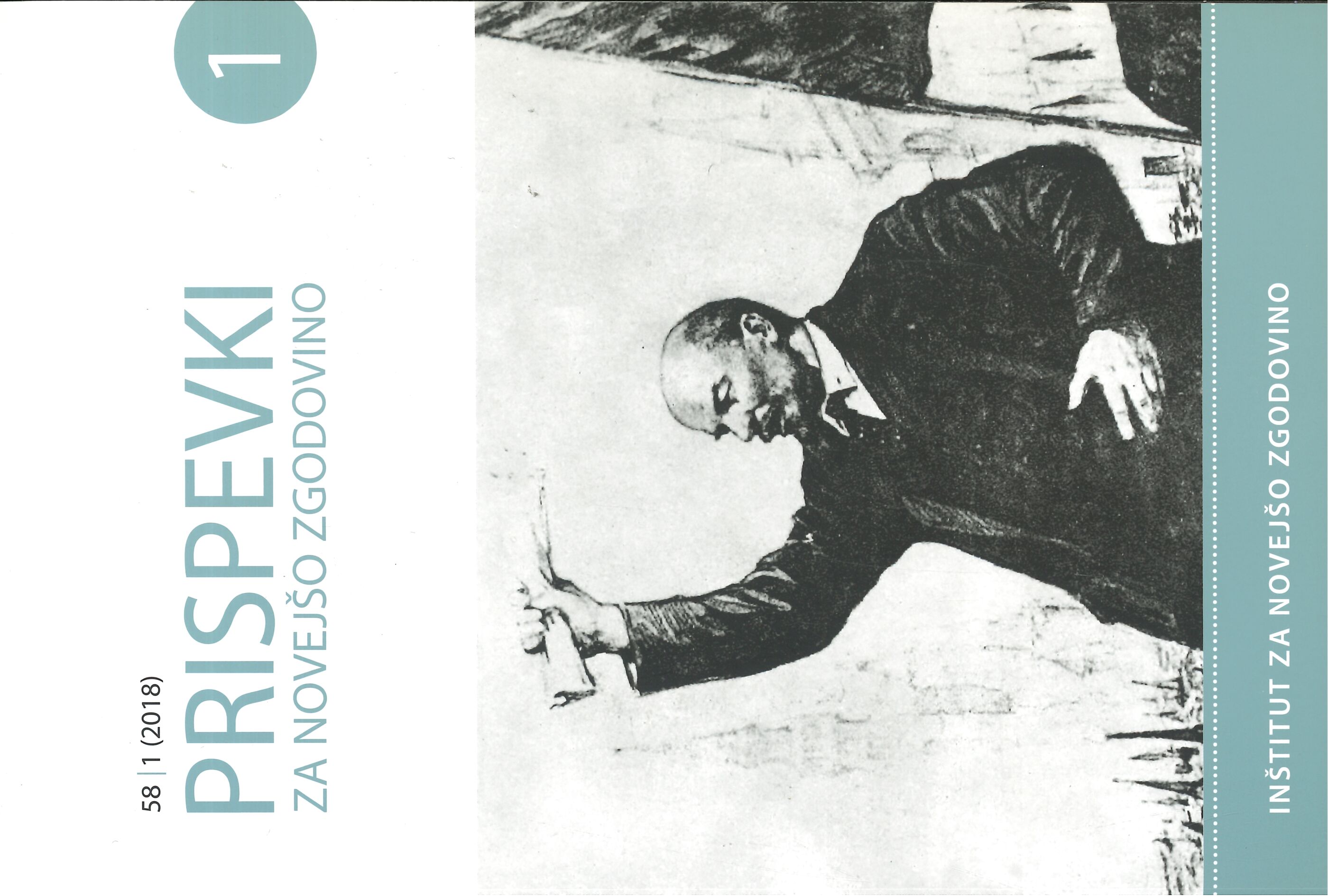The Outlooks of the Slovenian Bourgeois Politics on the October Revolution until World War II
DOI:
https://doi.org/10.51663/pnz.58.1.04Abstract
On the basis of their understanding of the human society and individuals in it, the members of the Slovenian bourgeois camp – who possessed a thorough insight into the revolutionary October and the country it took place in – saw the October social overthrow and the consequent Soviet social, political, and economic development as a fundamental threat to the civilised world in which they lived and which they consciously advocated. Even though they understood the October phenomenon historically, they did not accept its consequences. While simultaneously exhibiting an anti-Semitic viewpoint, they would underline the totalitarian, all-encompassing class-based Bolshevik power, the collectivist and anti-religious character of the Soviet community, its inherent personal insecurity, and its unpromising social and economic development – even though they did recognise some of its economic and educational achievements. Ivan Tavčar stood out with his negative opinion of the October Revolution on the liberal side, just as Dr Ivan Ahačin and Fran Erjavec did on the Catholic side. Dr Aleš Ušeničnik, the leading Catholic philosopher, rejected it theoretically as well. The bourgeois camp saw Bolshevism as its key opponent, and the declared struggle against it represented a permanent feature of the bourgeois politics in the Kingdom of Serbs, Croats and Slovenes/Kingdom of Yugoslavia. This was an integral part of its ideological foundations, which the Catholic side provided with a distinct world-view moment as well. With such an ideological and political attitude, the bourgeois camp saw the end of the Yugoslav Kingdom and entered the time of World War II in Slovenia.
Downloads
Published
Issue
Section
License
Authors who publish with this journal agree to the following terms:
- Authors retain copyright and grant the journal right of first publication with the work simultaneously licensed under a Creative Commons Attribution License that allows others to share the work with an acknowledgement of the work's authorship and initial publication in this journal.
- Authors are able to enter into separate, additional contractual arrangements for the non-exclusive distribution of the journal's published version of the work (e.g., post it to an institutional repository or publish it in a book), with an acknowledgement of its initial publication in this journal.
- Authors are permitted and encouraged to post their work online (e.g., in institutional repositories or on their website) prior to and during the submission process, as it can lead to productive exchanges, as well as earlier and greater citation of published work (See The Effect of Open Access).


